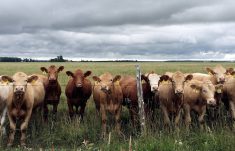The early days of the carnival ride that is the Trump presidency have already exceeded even the most jaded expectations.
In less than two weeks, he’s unleashed a flurry of executive orders, memorandums and proclamations that have ranged from the mundane to the downright terrifying. From pulling the U.S. out of the Trans-Pacific Partnership to banning immigration from seven majority-Muslim nations, he has moved more swiftly than even his harshest critics imagined.
While most politicians tend to apply the worst medicine early in their mandate, President Trump has doubled down. Dilbert cartoonist turned political pundit Scott Adams, who was among the first to predict Trump’s outsider victory, has suggested on his blog that it’s all part of a strategy.
Read Also

OPINION: Ag Days 2026 moved talk from trade anxiety to tactics
Farmers, speakers and exhibitors at Manitoba Ag Days 2026 were again talking trade uncertainty and tariffs, but this year’s tone felt more proactive.
Adams calls what’s happening “outrage dilution” and suggests the shock-and-awe method will prevent opposition from truly coalescing because nobody can decide just which fresh outrage to march against.
The jury is still out on this, but one thing is certain: it’s caused a fresh round of “Trump is Hitler” speculation.
There’s no denying he’s not a nice man. From all appearances he’s a megalomaniac blowhard, and possibly a clinical narcissist. A slew of news articles in recent days has featured psychologists making these and similar remote mental health diagnoses.
Trump isn’t the first politician to love the sound of his own voice, or think he’s the smartest one in the room. Sometimes they even appear in places other than the U.S., such as on this side of the border.
Some are comparing Trump to Hitler, but I think the real danger flies under the radar. It’s more likely that the closest historical parallel is that Trump will actually be the 21st century’s Herbert Hoover.
That’s perhaps an unfair comparison to make, linking the sober and serious 31st president of the United States to the intemperate and mercurial 45th president, but both assumed the presidency at a time when that nation faced serious economic challenges. In Hoover’s case it was the bust that followed the Roaring ’20s, and in Trump’s case it’s the aftermath of the global financial crisis and the inequalities that a generation of liberalized trade has failed to address.
The 1929 stock market crash, and ensuing Great Depression, began just eight months into Hoover’s only term in office. He responded with a public works program of major construction projects, such as the Hoover Dam, and calls for industry to keep employee wages at pre-Depression levels. And while he himself was extremely reluctant to sign off on the policy, his administration also saw the imposition of the Smoot-Hawley Tariff of 1930.
Now almost forgotten, this act of Congress was signed into law June 17, 1930, increasing import tariffs on some 20,000 products to levels not seen in a century. This was followed quickly by retaliatory tariffs by U.S. trading partners. The effect was crippling, with even the most conservative estimates saying the move reduced U.S. imports and exports by more than half during the Great Depression.
In economic terms, this is known as a beggar-thy-neighbour policy, and is defined as one country seeking to allay its economic problems with means that worsen the economic conditions of other countries. Ultimately experience would suggest that the country imposing the sanctions suffers almost as much in the end.
So far, all signs point to Trump taking very similar actions, which could have dire consequences for both the U.S. and its trading partners, including its biggest, Canada.
He’s already used the bully pulpit of the presidency to shame automakers into mothballing expansion plans in Mexico. At the same time, he has signalled that a border tax could well apply to Canada’s auto exports to the U.S., placing the long-standing free trade model for this sector in jeopardy. Signed into law in January of 1965 by then prime minister Lester B. Pearson and then president Lyndon Johnson, the Auto Pact was actually the foundation of the first Canada-U.S. free trade agreement.
For a trading nation like Canada, any move away from trade is troubling, and nowhere more so than in the agriculture sector, where exports are the order of the day.
At the top of the sector’s worry list these days are the reinstitution of country-of-origin labelling for meat, the fate of the supply-managed commodities and just what a turn away from globalized trade in the U.S. and Britain through the Brexit vote may mean.
Unlike Hoover, Trump is a formidable advocate for such measures. That’s worrisome and adds to the air of concern and uncertainty. Nobody knows just how the next few years will play out.
One can only hope there might be a modern Roosevelt waiting in the wings.















